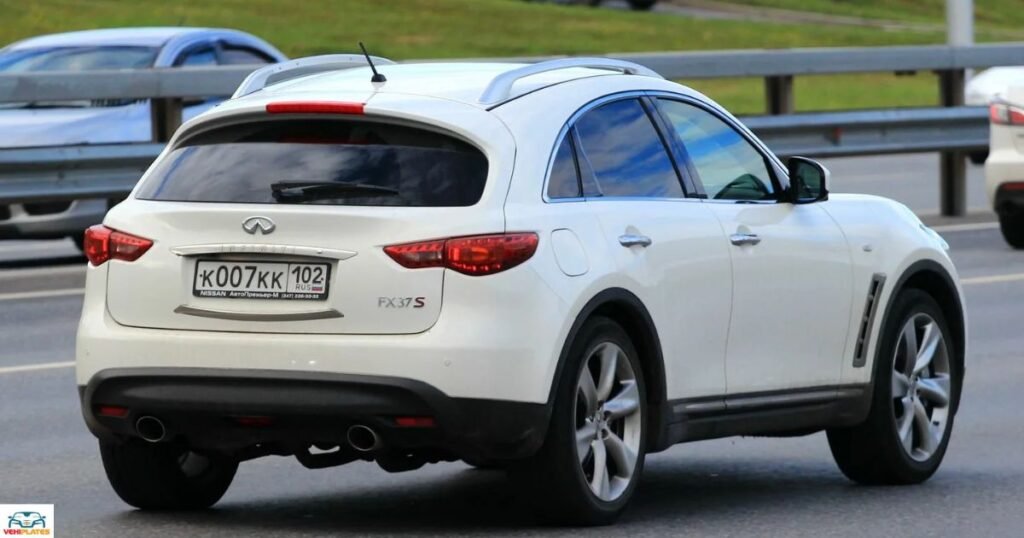License plates are ubiquitous features of vehicles worldwide. They serve as unique identifiers for vehicles, enabling authorities to track ownership, registration, and compliance with traffic laws.
As technology advances and information becomes more accessible, concerns arise regarding the privacy and security implications of license plate data.
Can someone find you with your license plate? Let’s delve into this question to understand the complexities and potential risks involved.
The Functionality of License Plates
License plates, also known as vehicle registration plates or tags, typically consist of alphanumeric characters uniquely assigned to each vehicle. These plates serve several essential functions:
Vehicle Identification: License plates provide a means of identifying individual vehicles among the vast numbers on the road.
Law Enforcement: Authorities use license plate data to enforce traffic laws, track stolen vehicles, and investigate crimes.
Registration: Plates are linked to vehicle registrations, ensuring that vehicles are legally authorized to operate on public roads.
Revenue Collection: Registration fees associated with license plates contribute to funding transportation infrastructure and services.
Accessibility of License Plate Data

While license plate data has traditionally been accessible to law enforcement and government agencies, advancements in technology have expanded its availability to various entities and individuals. Here’s how license plate data can be accessed:
Law Enforcement Databases
Police departments and other law enforcement agencies maintain databases containing license plate information for investigative purposes.
Automated License Plate Readers (ALPR)
ALPR systems, installed on vehicles or stationary structures like traffic lights and toll booths, automatically capture license plate images and store associated data.
Commercial Databases
Several companies collect and aggregate license plate data from various sources, including parking lots, toll booths, and government agencies, for commercial purposes.
Public Records Requests
In some jurisdictions, license plate information may be obtainable through public records requests, albeit with varying degrees of restrictions and oversight.
Risks and Privacy Concerns
| Risks and Privacy Concerns | Description |
| Surveillance and Tracking | Concerns about mass surveillance and erosion of privacy through tracking. |
| Stalking and Harassment | Potential for malicious actors to exploit data for stalking or harassment. |
| Identity Theft | Risk of facilitating identity theft or other forms of fraud. |
| Government Overreach | Potential for abuses of power, including political surveillance. |
| Data Breaches | Increased risk of exposing sensitive information to unauthorized parties. |
License plate data poses multifaceted risks to individual privacy and security, including surveillance, stalking, identity theft, government overreach, and data breaches. Vigilant safeguards and regulatory oversight are imperative to address these concerns effectively.
Legal and Regulatory Framework

Governments are grappling with the need to balance law enforcement objectives with individual privacy rights:
Legislation: Some jurisdictions have enacted legislation to regulate the collection, storage, and use of license plate data, imposing restrictions on its dissemination and requiring data security measures.
Court Decisions: Courts have issued rulings on the legality of collecting and accessing license plate data, often weighing the Fourth Amendment protections against unreasonable searches and seizures.
Public Advocacy: Civil liberties organizations and privacy advocates campaign for greater transparency and accountability in the handling of license plate data, advocating for robust safeguards to protect individual privacy rights.
Mitigating the Risks
To address the privacy and security risks associated with license plate data, several measures can be implemented:
Data Minimization
Limit the retention period for license plate data and restrict access to authorized personnel to minimize the risk of misuse, while also ensuring compliance with regulations, including considerations such as ‘are LED License Plate lights legal?’
Anonymization
Remove personally identifiable information from license plate data whenever possible to prevent unauthorized tracking of individuals.
Encryption and Security Protocols
Implement encryption and stringent security protocols to safeguard license plate data from unauthorized access and data breaches.
Transparency and Accountability
Establish clear guidelines and oversight mechanisms for the collection, storage, and use of license plate data to ensure transparency and accountability.
Public Education
Educate the public about the risks associated with license plate data and empower individuals to take proactive measures to protect their privacy, such as using license plate covers or opting out of data collection programs where possible.
FAQ’s
How easily can someone track my movements using my license plate?
Using advanced technology like ALPR systems, it’s possible to track vehicle movements efficiently, raising concerns about privacy.
Are there legal restrictions on who can access license plate data?
Legislation varies by jurisdiction, but some places have implemented restrictions to safeguard privacy and prevent misuse of data.
Can license plate data be used for purposes other than law enforcement?
Yes, commercial entities often collect and utilize license plate data for various purposes, including marketing and parking management.
Conclusion
While license plates play a crucial role in vehicle identification and law enforcement, the widespread availability of license plate data poses significant privacy and security risks.
Governments, law enforcement agencies, and technology companies must work together to strike a balance between the legitimate needs of law enforcement and the protection of individual privacy rights.
By implementing robust safeguards, promoting transparency, and empowering individuals to protect their privacy, we can mitigate the risks associated with license plate data and ensure a safer and more secure society.










